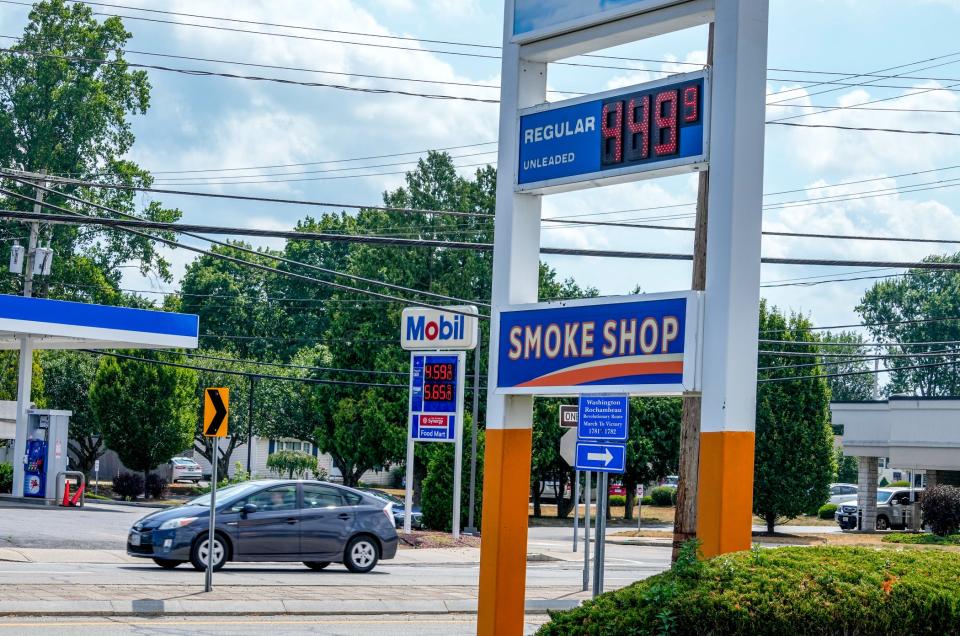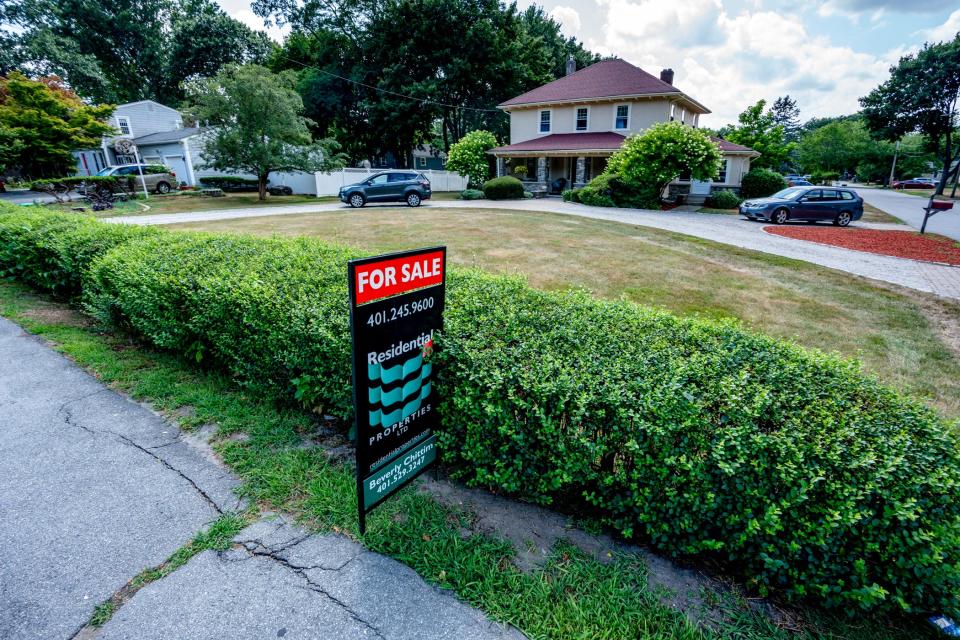Rhode Island's economy is hurting, but is it in a recession?
How are you liking the Rhode Island economy these days?
As the Ocean State moves through the third summer since the COVID-19 pandemic began, the economy is sending decidedly mixed signals.
There's good news and bad news, and depending on your particular circumstances, you may be feeling a lot of economic pain or not much at all.
Jobs are plentiful
The biggest piece of good news: if you want a job, there's one for you.
At the end of 2019, Rhode Island unemployment was at 3.6%, well below the 4% to 5% range that is considered "full employment" – when job seekers have little trouble finding work.
Then the pandemic hit. Businesses closed. Across the state, workers were laid off or furloughed. By April 2020, unemployment spiked to 18.4%, the highest in state records that go back to 1976.
'Where are the people?': Jobs are available in RI this summer, but workers aren't
Two years later, it's the opposite story.
In June, the unemployment rate hit 2.7%, the lowest in those records dating to 1976.
With that came solid job growth in many of the state's industries.
In total, the state had more than 500,000 jobs in early 2020 as the pandemic began.
By April, more than 100,000 jobs had been lost, bringing the total to just under 400,000.
In the two most recent jobs reports, the state is flirting with 500,000 again, registering 496,400 in both May and June, roughly 11,000 shy of the pre-pandemic high of 507,800 set in February 2020.
Two key sectors have seen a strong rebound, recovering all the jobs lost during the pandemic: manufacturing and construction.
Manufacturing jobs hovered at 39,800 to 40,000 throughout 2019 and into February 2020. Then the sector shed 17% of its jobs, down to 33,300 in April that year. This June, the U.S. Bureau of Labor Statistics reported 40,300, the highest since June 2018's 40,400.
Similarly, construction went from 20,400 jobs in February 2020 to 16,000 in April 2020, and back up to 21,700 in June 2022.
But some sectors are still struggling – not because there isn't enough work, but because workers have not returned to those jobs.
There is no sharper example than the hospitality industry.
Before the pandemic, the restaurant and hotel industries employed 52,600 people in Rhode Island.
That plummeted to 20,200 in April 2020 as lockdowns kept people hunkered down at home, and the pandemic closed indoor restaurant dining for months.
Although hospitality jobs have bounced back considerably, June's total of 49,600 is still 6% below the pre-pandemic peak.
Suddenly, things cost a lot more

Nationally, inflation is a level not seen for half a century, approaching 10%, compared with 2% to 3% for more than 40 years.
In Rhode Island, that means things such as food and gasoline and houses – along with just about everything else – cost more.
Prepare now: Electricity will be much more expensive in RI next winter
The average price of a gallon of regular gas had fallen to $1.93 the week of May 11, 2020, according to AAA, as working from home kept commuters off the roads and COVID travel restrictions kept all but essential workers from interstate travel.
As travel resumed, coupled with refinery shutdowns and Russia's war in Ukraine, prices soared, passing the unheard-of $5 level, peaking at $5.02 the week of June 13 before easing a bit to $4.49 the week of July 25.
The price of housing has skyrocketed, which could be good news if you own a house, not so much if you don't.
In February 2020, the month the first cases of COVID came to Rhode Island, the median sale price for a single-family house was $274,900, according to the Rhode Island Association of Realtors.
RI's housing market: Still hot, but is it starting to cool off?
It's been off to the races ever since.
In June this year, that median price was $430,000, an increase of 56%, well ahead of the pace of inflation.

The trick is how to make use of those gains. If you sell, you may pocket a chunk of change, but you'd probably have to plow that into a down payment for a new place.
And, while borrowing against equity is still an option, it's not as cheap as it was just seven months ago. The prime rate at the beginning of 2022 was 3.25%. But as inflation started heating up, the Federal Reserve raised rates several times, hoping to cool demand, ending up at 5.5%
Perhaps one exception to the cost of everything going up, and only a small savings:
Rhode Island eliminated the car tax this year, so automobile owners no longer have to pay annual taxes on their vehicles to the city or town where they keep their autos.
Are we in a recession?
The short answer is that no one knows – yet.
Although a popular rule-of-thumb definition of a recession is two or more consecutive quarters of declining gross domestic product, that's not the official standard.
According to the Bureau of Economic Analysis, a federal agency, a recession is a period of contraction of many economic activities at the same time, as judged by the National Bureau of Economic Research, a private organization. So, just measuring gross domestic product, or GDP, doesn't determine whether we're in a recession.
But going by the rule of thumb, Rhode Island was in a recession the first half of 2020, and might be going into one now, but it's too soon to tell.
After seeing a decline in GDP during the first quarter of 2021, the Ocean State had three consecutive quarters of growth.
The first quarter of this year also saw a decline in GDP, but the Bureau of Economic Analysis has not yet made public its figures for the second quarter.
What does being in a recession mean?: And is the U.S. officially in one?
This article originally appeared on The Providence Journal: RI economy: Good news and bad news, but is it a recession?

